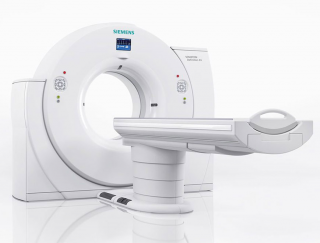Heart Screening Packages
Keep Your Heart Strong – Regular Heart Check Ups for a Healthier Tomorrow
Take the first step to heart health! All of our heart screening packages include:
- 2 consultations with our cardiologist
- pre-assessment consultation
- medical report review
Request for a same-day# consultation with our heart specialist.
#Same-day consultation by request only.
Book Now
Medical Assessment
- Consultation with Cardiologist
- Medical history & risk profile screening
- Physical Examination
- Height & Weight
- Blood Pressure Reading
- Review and Report
Heart Assessment
- 12-Lead Electro-cardiogram (ECG)
- Treadmill Stress Test
$428 nett
(Pre-assessment & Medical Report Review)
Blood Analysis
Blood Analysis
- Haematology
- Kidney Function Test
- Diabetic Panel
- Thyroid Profile
- Urine Analysis
- Liver Function Test
- Bone/Joint Profile
- Lipid/Cardiac Risk Profile
- Others
Haematology
- Full Blood Count, PBF
Kidney Function Test
- Urea
- Creatinine
- Sodium
- Potassium
- Chloride
Diabetic Panel
- Glucose (Fasting)
- HBA1c
Liver Function Test
- Bilirubin
- Protein
- Albumin
- Globulin
- A/G Ratio
- ALT/SGPT
- AST/SGOT
- Alkaline Phosphatase
- GGT
Lipid/Cardiac Risk Profile
- Total Cholesterol
- Cholesterol HDL
- Cholesterol LDL
- Chol Total/HDL Ratio
- Triglycerides
- Hs C-Reactive Protein (hs-CRP)
Others
- Creatinine Kinase
(Optional) To top-up $50 nett to upgrade blood profile including (Thyroid Profile, Bone/Joint Profile, Urine Analysis).
*All screening packages include 2 Specialist Consultations (pre-assessment & medical report review)
Preparing for Your Heart Screening
- As fasting is required for the blood test, please abstain from food and drinks for at least 6-8 hours before your scheduled appointment. Sips of plain water are allowed.
- Please bring along sports attire for cardiac evaluation purposes. This includes sports shoes and socks.
- For your comfort and convenience at the medical examination, it is advisable to wear a 2-piece outfit.
Frequently Asked Questions (FAQs)
- Why do I need a Treadmill Stress Test?
- What is 2D Echo?
- Why should I consider CT Coronary Angiogram?
- What is Lipid Profile?
- Can I pay using my medical insurance?
Also known as the Cardiac Stress Test, the Treadmill Stress Test is carried out to diagnose possible heart-related causes of complaints such as chest pain, shortness of breath or light-headedness. This test observes and measures the heart’s response to different levels of exertion during exercise.
What to expect
You will be hooked up to various monitoring devices and will be required to walk and/or run on a treadmill as the speed and angle of inclination are gradually increased. The test will take about ± 30 minutes (including the preparation and recovery).
Also known as Echocardiogram or Cardiac Echo. This is a painless scan which uses ultrasound waves to create moving images of the heart chambers, valves, walls and blood vessels attached to the heart. This allows for doctors to examine the heart structure and functionality such as pumping of the heart muscle and opening and closing of valves.
What to expect
A transducer is applied to your skin over the chest area, producing sound waves that ‘echo’ back and are displayed as images on a monitor. The scan takes about 30 minutes.

This non-invasive imaging procedure detects problems in the important blood vessels that supply blood to the heart muscles. It is chiefly used to diagnose the existence of coronary artery disease, also known as atherosclerosis, which is a narrowing or blockage of the arteries due to the presence of fatty or calcium deposits.
What to expect
A dye will be injected into your arm through intraveneous (IV) drip, allowing arteries to be visible on X-ray. Electrodes will then be placed on your chest to monitor heart rate. A CT scanner will then capture cross-sectional images of your heart for further analysis. The test may take approximately an hour.

Lipid Profile or also commonly known as Cholesterol Test, measures the amounts of total cholesterol, high-density lipoprotein (HDL), low-density lipoprotein (LDL) and triglycerides (fat) in the blood. High cholesterol levels can increase the risk of coronary artery disease, heart disease and stroke.
What to expect
You are required to fast for 8 hours before taking a cholesterol test. A blood sample will be drawn and analysed for cholesterol levels.
Heart screening packages are not available for insurance claims. For patients who wish to utilise their insurance benefits, please check with your corporate HR or insurance provider on medical benefits entitlement (ie GP referral letter) before scheduling an appointment.
We are on the specialist panels of various Insurance Plans as shown below.
![]()
Book an Appointment Today
- Type of service
- Surgery
- Cost of service
- Starting from $2800
